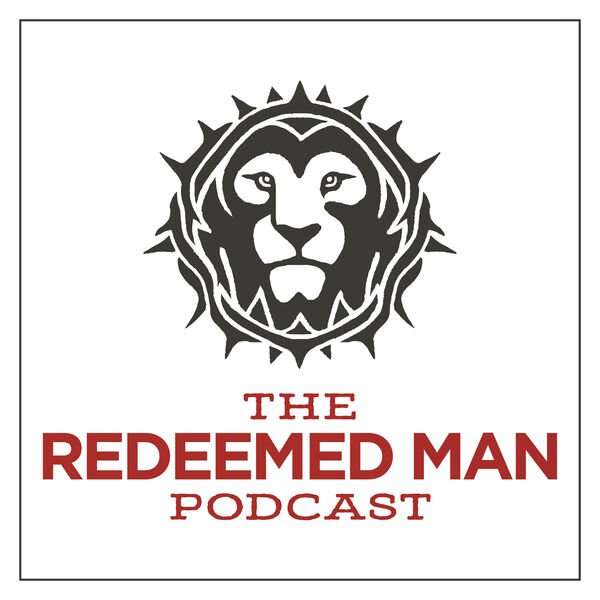Faithful Leadership at Work and Home

More About The Podcast
- About
- Show Notes
About
Dr. Mike Zigarelli has more than two decades’ worth of experience researching and writing about the intersection between business, faith, and leadership. This week, he talks with Redeemed director Nate Dewberry to share what he’s learned from successful Christian business leaders and from Messiah University’s phenomenally successful men’s and women’s soccer programs. His insights—such as pursuing a purpose higher than winning and owning responsibility rather than shifting blame—are practical habits men can apply in their daily lives as businessmen, husbands, and fathers.
Show Notes
Segment chapters
0:00 Intro/a little about Mike’s background
3:23 Mike’s faith journey/What does redemption mean to you?
9:11 How Mike got inspired to study and write about leadership
14:39 Some common traits of the Christian business leaders Mike’s studied
18:08 Lessons from Messiah U soccer that men can apply in their daily lives
24:35 What Mike experienced as he applied those leadership principles to his own life
30:45 Striking a balance between striving and contentment
37:08 Mike previews his next project/closing thoughts
Snippets/excerpts
3:35 to 5:31—Mike describes what “redemption” means to him: “a way out of bondage,” because God’s unconditional love breaks the chains
15:00 to 16:05—Some common traits Mike has discovered in the Christian business leaders he’s researched
20:30 to 22:23—A leadership principle of Messiah University’s hugely successful soccer programs that we can all apply to our own lives: Being intentional about everything—and not blaming outside forces when something goes wrong
32:34 to 34:28—The “battle” between striving and contentment, and the need to strike a healthy balance between the two
Discussion
- Mike admits his marriage hit a very rough patch when he started to resent that he was coming in “fifth place” behind his four children. He had to learn how to lead as a servant – putting others first instead of fighting for his own place. In your own marriage or relationship, have you experienced any similar lessons? Did those humbling moments ultimately make you a better husband, partner, or father? Explain. Philippians 2:3-4
- Mike says he was inspired to seek a more meaningful legacy upon the untimely death of his father-in-law, an accomplished researcher and veterinarian. Have you lost anyone important to you whose death inspired you to seek a new path in life? How did that loss affect you, and what did you feel newly called to do? Psalm 90:12
- Discuss the common characteristics Mike says he noted among numerous Christian-owned businesses: having a Christ-centered purpose; giving generously to charitable causes; offering a product or service with a direct connection to customers’ faith journeys; and treating employees as family and paying them a living wage. Does your company or business currently employ any of these practices? Are there practices they’re not currently utilizing that you could recommend implementing? Colossians 3:23-24
- Mike says one of the most significant contributors to the success of the Messiah University soccer programs is their culture of accountability and intentionality. The coaches understand there’s a lot they can control, and as a result, they accept responsibility if something goes wrong. Do you promote that same kind of culture in your own business, household, or even within yourself? When something bad happens, are there any common “crutches” you lean on in terms of assigning blame? Why do you think you turn to scapegoats so often rather than asking what you can do better? Galatians 6:4-5
- In the “battle between striving and contentment” that Mike describes, do you find yourself veering more toward one side than the other? How has that tendency – whether toward constant striving or settling into contentment – impacted you and those closest to you? When you wrestle with that balance, how often do you invite God into the process and ask him to help move you toward the middle ground? Philippians 4:11-13
- When you achieve a goal or accomplish something meaningful, do you take time to celebrate and appreciate that achievement, or do you immediately launch into striving toward the next big thing? Why do you think you behave that way? Ecclesiastes 3:12-13
Other resources
A few of Mike’s books (this is by no means a complete list, but they’re the ones he specifically mentioned as being proud of)
Management by Proverbs: Scriptural Wisdom for Superior Results
Faith at Work: Overcoming the Obstacles of Being Like Christ in the Workplace
Christian-Owned Companies: What Does It Look Like When a Follower of Jesus Runs a Business?
Search Podcasts
Enjoyed This Episode?
Discover more inspiring episodes of The Redeemed Man Podcast wherever you tune in!
Share This Podcast
Sign up for updates
When you sign up for this mailing list, you’ll receive regular updates for The Redeemed.
More From The Redeemed Man Podcast

Be Humble, Be Present, and Don’t Be Peter Pan
Luke Lezon, the lead pastor at Lifebridge Church in Orlando, talks about his unusual path to church leadership and how it’s shaped his life.

What God Has Been Building Among Us
The Redeemed welcomes a new year by looking back at the developments, guests, and stories that made a big impact in 2025.

A Christmas Message from The Redeemed
Christmas means something different for each of us. For some it’s full of joy. For others, it’s a hard and lonely season. No matter where you find yourself, we want you to hear this: You are loved, and you’re not walking through life on your own.
Paul Amos recorded a short Christmas message to speak hope, encouragement, and the truth of what Jesus’ birth means for us today. Praying this season brings you rest, joy, and renewed hope.
Take a moment to watch the message.









